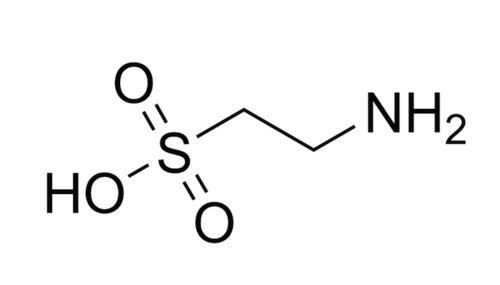La taurine is a non-essential amino acid that contains sulfur and it can be supplied both from the diet and synthesized in the body from methionine and cysteine, in the presence of vitamin B6. Let's find out better.

What is taurine used for
Taurine is different from other amino acids for two main reasons:
- It is not used for protein synthesis but is found unattached or in small peptide chains
- It has a different structure from that of other amino acids: in taurine the sulfur group replaces the carboxylic acid.
Taurine is an important regulator and plays a key role in maintain the stability of the cell membrane.
Regulates the heartbeat, prevents excessive activity of brain cells and it is essential in the visual process.
It also plays a fundamental role in the conjugation of bile acids and in detoxification. It has action antioxidant, membrane stabilization, osmotic regulation and modulation of cellular calcium levels.
It is used in cardiovascular problems, in epilepsy, in macular degeneration, in Alzheimer's disease and in cystic fibrosis.
You can delve into all the ailments and natural remedies for heart health

Where is taurine and its daily requirement
The supplementation of 1-4 g per day of taurine has been shown to be effective in improving the functioning of the heart in cases of heart failure, in lowering blood pressure and in reducing epilepsy attacks.
The amount of taurine consumed through food varies from 40 to 250 mg per day. It is generally present more in the foods of animal origin.


























